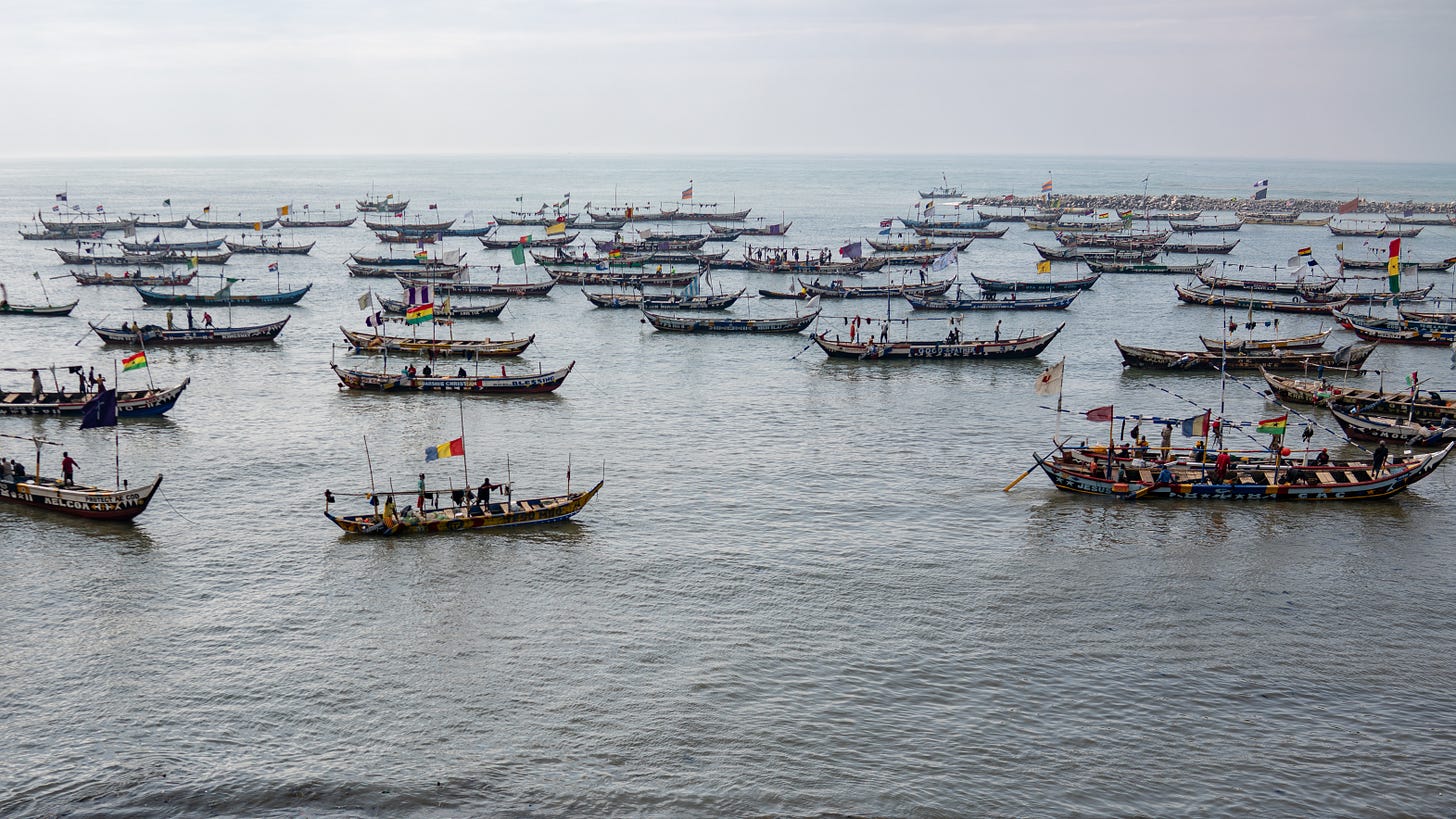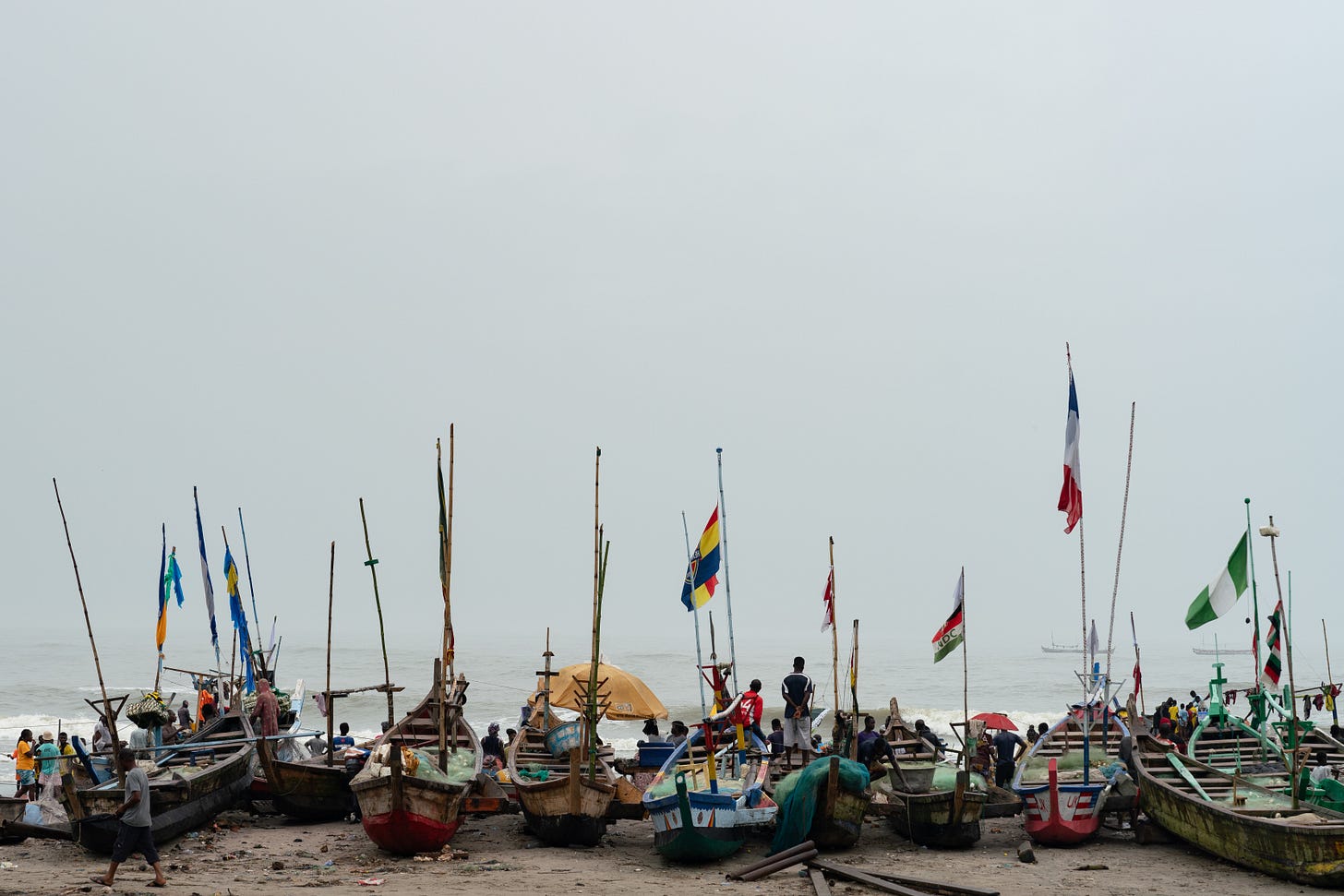Ghana: No more fish in the sea
Fishermen keep coming home with empty nets. Illegal competition from foreign vessels is part of the problem – but climate change is an even bigger threat.
From the shores of Jamestown Beach, on the Atlantic coast, The Continent watches anxious fishermen haul in their nets. Yet again, the catch falls short of expectations. “I came here early in the morning, but I couldn’t find any fish, so I am going home,” says Victoria NiiKwei Tagoe, a local fishmonger. “It’s worrying that the fishermen are struggling to find enough fish in the sea.”
The immediate problem is that Ghanaian fishermen are no longer alone in their territorial waters. They are having to share the sea with a fleet of fishing vessels serving foreign interests – and dinner plates. These trawlers have been accused of devastating fish stocks through illegal fishing practices – known in the industry as IUU activities. IUU stands for illegal, unreported and unregulated – practices include the use of dynamite, cyanide, pesticides and bright lights. “I cannot deny that some artisanal fishermen are involved in illegal fishing,” says Nii Ayi Mensah, a 47-year-old fisherman. “But the major problem is caused by overseas companies.”
Ghanaian laws make it illegal for foreign entities to own industrial fishing vessels that sail under the Ghanaian flag. But international companies circumvent this regulation by creating Ghanaian front companies. A 2021 report by the Environmental Justice Foundation claims that corporations from China in particular own approximately 90% of industrial vessels involved in IUU activities in Ghana. Profits generated by these vessels are channelled out of the country.
Enforcement issues
While Ghana does have strict fishing regulations, these are not always enforced. Only 61 out of 477 recorded cases of IUU fishing between 2001 and 2021 have been resolved, according to Ghana’s Fisheries Commission. In 2020, the vessel Lu Rong Yuan Yu 956 had its licence to fish in Ghana renewed despite failing to pay a $1-million fine for illegal fishing.

In recent years, China’s vast overseas fishing fleet has expanded to keep up with a growing demand for fish at home, amid a precipitous decline in local fish stocks due to overfishing and climate change. In West Africa, these vessels catch an estimated 2.35-million tonnes of fish every year, worth $5-billion.
“It’s worrying that the fishermen are struggling to find enough fish in the sea.”
The Chinese embassy in Ghana did not respond to a request for comment.
Climate change is expected to wreak further havoc on Ghana’s remaining fish stocks. As ocean temperatures rise, fish species will seek cooler waters – making traditional fishing grounds less productive. And frequent floods, droughts, and coastal erosion make it harder for fish to survive.
According to the World Bank, climate change alone could diminish Ghana’s potential catches by 25% or more by 2050 – posing a serious threat to both the country’s food security and coastal communities’ way of life.




